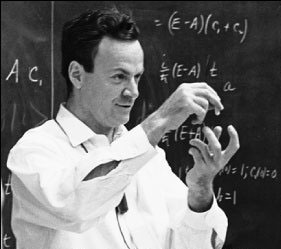I
do not feel obliged to believe that the same God who has endowed us
with sense, reason, and intellect has intended us to forgo their use.
Galileo Galilei
Read more at http://www.brainyquote.com/quotes/authors/g/galileo_galilei.html#DDvUq7fgIXr5yEtI.99
Galileo Galilei
Read more at http://www.brainyquote.com/quotes/authors/g/galileo_galilei.html#DDvUq7fgIXr5yEtI.99
I
do not feel obliged to believe that the same God who has endowed us
with sense, reason, and intellect has intended us to forgo their use.
Galileo Galilei
Read more at http://www.brainyquote.com/quotes/authors/g/galileo_galilei.html#DDvUq7fgIXr5yEtI.99
Galileo Galilei
Read more at http://www.brainyquote.com/quotes/authors/g/galileo_galilei.html#DDvUq7fgIXr5yEtI.99
I
do not feel obliged to believe that the same God who has endowed us
with sense, reason, and intellect has intended us to forgo their use.
Galileo Galilei
Read more at http://www.brainyquote.com/quotes/authors/g/galileo_galilei.html#DDvUq7fgIXr5yEtI.99
Galileo Galilei
Read more at http://www.brainyquote.com/quotes/authors/g/galileo_galilei.html#DDvUq7fgIXr5yEtI.99
I
do not feel obliged to believe that the same God who has endowed us
with sense, reason, and intellect has intended us to forgo their use.
Read more at http://www.brainyquote.com/quotes/authors/g/galileo_galilei.html#DDvUq7fgIXr5yEtI.99
Read more at http://www.brainyquote.com/quotes/authors/g/galileo_galilei.html#DDvUq7fgIXr5yEtI.99
I
do not feel obliged to believe that the same God who has endowed us
with sense, reason, and intellect has intended us to forgo their use.
Galileo Galilei
Read more at http://www.brainyquote.com/quotes/authors/g/galileo_galilei.html#DDvUq7fgIXr5yEtI.99
Galileo Galilei
Read more at http://www.brainyquote.com/quotes/authors/g/galileo_galilei.html#DDvUq7fgIXr5yEtI.99
Facts
which at first seem improbable will, even on scant explanation, drop
the cloak which has hidden them and stand forth in naked and simple
beauty.
Galileo Galilei
Read more at h
Galileo Galilei
Read more at h
I
think that in the discussion of natural problems we ought to begin
not with the Scriptures, but with experiments, and
demonstrations - Galileo
Galilei
Galileo Galilei (15 February 1564– 8 January 1642) was an Italian physicist, mathematician, astronomer, and philosopher who played a major role in the Scientific Revolution. His achievements include improvements to the telescope and consequent astronomical observations and support for Copernicanism. Galileo has been called the "father of modern observational astronomy", the "father of modern physics", the "father of science", and "the Father of Modern Science".
I
think that in the discussion of natural problems we ought to begin not
with the Scriptures, but with experiments, and demonstrations.
Galileo Galilei
Read more at http://www.brainyquote.com/quotes/authors/g/galileo_galilei.html#DDvUq7fgIXr5yEtI.99
Galileo Galilei
Read more at http://www.brainyquote.com/quotes/authors/g/galileo_galilei.html#DDvUq7fgIXr5yEtI.99






